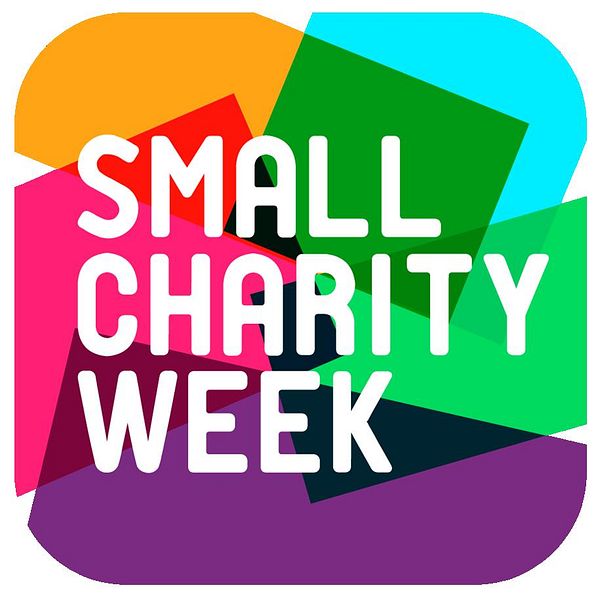Blog post -
We Knew Size Mattered: Now Our New Independent Research Proves It
Small Charity Week is always a date in the diary for us – after all, as a funder of only small and local charities, we brim with pride alongside FSI as those vital organisations get the recognition they deserve.
But for us, #SmallCharityWeek is particularly special. Today we’re unveiling a major independent study completed by a consortium of researchers, which asks a simple question: What’s the value of small?
Over the last 18 months, researchers have immersed themselves in four local communities - Ealing, Bassetlaw, Salford and Wrexham to carry-out in-depth studies of small and medium-sized charities, those with an income of £10,000 - £1m, helping local people facing a range of social issues. They gathered a huge range of evidence from charities, all typical of the 64,000 small and medium charities across the country to test just how distinctive small charities are.
We’ve been biting our nails ever since. But the evidence is clear, and all too familiar for those of us who know the #valueofsmall. These charities are distinctive:
- In what they do, for whom: they’re often the first responders in a crisis, creating spaces where people feel safe, respected and useful.
- In how they do it: they’re person-centred and responsive in their approach, building trust, offering an open door, a familiar face and fast, practical help
- In how they’re positioned: they’re part of an important mix of service providers helping people through crises and are seen as the ‘glue that holds communities together’.
Working with small charities we know they embody these characteristics without needing research – in fact, many larger ones do too. But the evidence shows that the unique value they add lies in the ‘powerhouse trio’ combination that sets them apart from other service providers.
Their distinctive value brings additional benefits including: individual value for their clients, such as building confidence and self-esteem to help them prepare for and secure employment; economic value through charities buying goods and services locally and added value through recruiting more volunteers than larger charities and bringing in new funding from trusts and others which typically can triple the income they received from the public sector.
Small is vital – so what?
The truth is, for the people they support, those charities are as vital as an ambulance might be as a ‘first response’ for any of us that became seriously unwell. We might not notice the work they’re quietly doing every day until we, or someone we know, is faced with one of life’s less simple problems, and has nowhere else to turn.
As a funder, it’s our job to respond to that need. And armed with the evidence, we can now argue harder just how unique small charities are and the importance of what they do. Those charities need support to be able to make life-changing impact for people overcoming issues like homelessness or domestic abuse, and for which there are no quick fixes.
Ed Gairdner of Good Exchange made a great challenge to funders when he spoke at Third Sector’s recent Fundraising conference, calling for us to radically simplify our approach to applications. With charities spending up to £100m each year on fundraising staff and application processes it’s not just a waste of money, it’s a waste of time - an even scarcer resource in time-poor local charities.
At the Foundation we’re working on this issue, and other aspects of what we do, to make sure that small charities can focus on helping the people that need them. Today, alongside the new report we’re launching our new strategy, which commits to funding charities for longer, developing them as organisations, and influencing policy and practice around the issues that affect them most. Practically it means funding core work more often than projects – keeping the lights on and the doors open. With reporting we’ll also be asking charities to tell us how they’re doing in their own words, and not ask them to translate it into ours. We’re going to strive to work with them as partners because ultimately, we know they are best placed to use our funding most effectively. And lastly, we’re also going to do more to influence on charities’ behalf, upping the ante based on the clear need shown through the research findings.
If our new strategy helps alleviate the uphill struggle charities face every day we hope to edge close to a society where people dealing with complex social issues are more often offered the support they need to overcome them. But to do this, we as a Foundation, and the sector more widely, need to be ready to embrace change and improvement, or else face a world where the vulnerable have nowhere to turn for a first response, and lack the support of a small charity to follow through after. The challenge for us all is very real. We’re pleased to be celebrating the strength of the sector today, and committing to partner with all those who share our vision to tackle the root causes and consequences for the long term.
Lloyds Bank Foundation for England and Wales partners with small and local charities who help people overcome complex social issues. You can read about The Value of small here or find their new five year strategy here. To support today’s launch event, please tweet @lbfew using #valueofsmall
Topics
- Public sector
